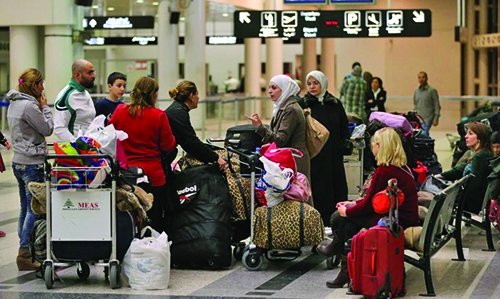Lebanon in the Doldrums
Escalating tensions between the Gulf Cooperation Council (GCC) nations and Lebanon, which includes the recent travel warning would negatively impact the Mediterranean country’s external position and fiscal stability, warned Moody’s credit rating agency yesterday.
The agency, in its report, said that these developments suggest potential negative sovereign credit implications for Lebanon and further escalation could lead to a slowdown in remittances from GCC, a reduction in foreign-exchange reserves and disruptions in trade flows, which would be credit negative for Lebanon.
Gulf visitors (which include the Lebanese diaspora) represent a majority of passenger arrivals in Lebanon. Total arrivals fell 19 per cent year-on-year in 2015, mainly due to a 46pc decline in Syrian arrivals as a result of travel restrictions imposed in January 2015. Citizens from Bahrain, Kuwait, Qatar, Saudi Arabia and the UAE comprised only 1.6pc of total arrivals, and total numbers from these countries have dropped by 55pc since 2011.
“Further tensions could negatively impact the Lebanese diaspora in the GCC through a freeze on new work visas for Lebanese nationals,” the report said.
According to a study by Université Saint-Joseph and Byblos Bank, remittance flows from Arab countries (and mostly the Gulf countries) made up around 43pc of the total remittances of $6.2 billion in 2014, or approximately 5pc of GDP.
A freeze in new visas would hence slow growth in remittances and deposit inflows, Moody’s warned.
“Lower GCC support would also erode Lebanon’s still robust external payments position. GCC governments could withdraw their deposits from the Lebanese central bank, Banque du Liban, which are estimated at around $860 million. Although relatively small compared to the $33bn in foreign-currency deposits held by Banque du Liban,” the report said.
Moody’s also said that a disruption in trade flows between Lebanon and Gulf countries would hurt an already weak trade position. Lebanese exports to the GCC (excluding Oman) have been relatively stable over the years and comprised around 27pc of total exports.
Related Posts

